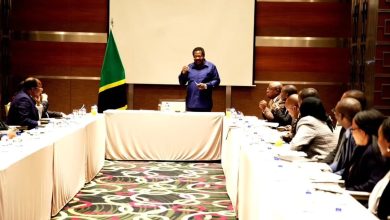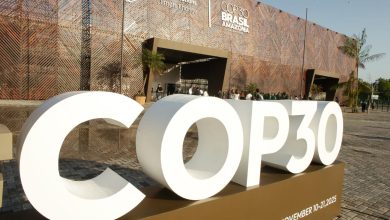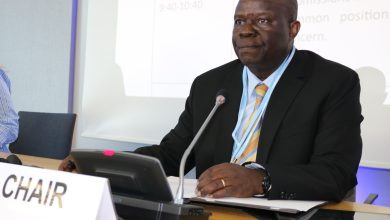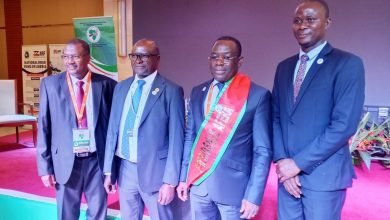EAC champions harmonised Africa resource mobilisation strategy
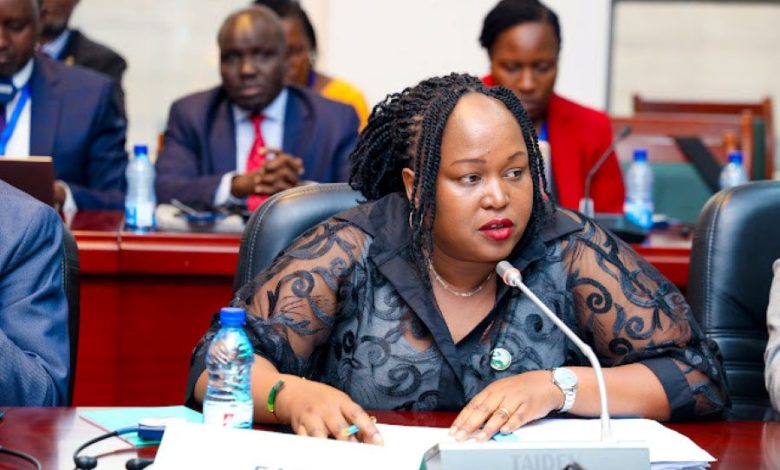
ARUSHA: THE East African Community (EAC) Secretary General, Ms Veronica Nduva has called for a unified and continent-wide resource mobilisation strategy to replace fragmented and duplicative efforts, in a bid to strengthen Africa’s collective financing capacity.
Speaking at a high-level roundtable convened by the African Union Development Agency-NEPAD in Malabo, Equatorial Guinea, Ms Nduva stressed the need for a harmonised approach to effectively fund the continent’s development goals, particularly the African Union’s Agenda 2063.
“While numerous forums have been held to deliberate on pooling resources for the continent, we must now move towards a coherent, streamlined strategy to deliver impactful results,” she said.
According to a statement posted on the EAC Secretariat website, the roundtable was held on the sidelines of the 7th Mid-Year Coordination Meeting of the African Union, which brought together senior AU officials, Regional Economic Communities (RECs), representatives from AU Member States, development partners and key stakeholders.
The discussions focused on accelerating the realisation of Agenda 2063 through African-led and sustainable resource mobilisation strategies.
Ms Nduva advocated for blended financing models that leverage public, private and philanthropic capital, highlighting the untapped potential of African philanthropists and the private sector in driving continental development.
“It is also critical to consider adopting austerity measures to ensure that resources allocated for development projects deliver the intended outcomes,” she added.
She further stressed the integration of technology and digital solutions to enhance planning, coordination and implementation of initiatives.
Echoing her sentiments, AU Commission Chairperson, Mahmoud Ali Youssouf, urged the continent to reduce donor dependence and shift towards a selfreliant model aligned with Africa’s priorities.
“As we prepare for the official launch of the Tripartite Free Trade Area (TFTA) during the upcoming 4th Tripartite Summit, it is essential that all critical instruments for the TFTA’s operationalisation be adopted by the next Tripartite Council of Ministers meeting,” he said.
During the Summit, the EAC also assumed the Chairmanship of the COMESA-EAC-SADC Tripartite Task Force (TTF), taking over from the Southern African Development Community (SADC) for a one-year term.
The Tripartite Free Trade Area Agreement, a key pillar of the broader African Continental Free Trade Area (AfCFTA), officially entered into force on July 25th last year, after securing the required 14 ratifications.
Preparations are now underway for its formal launch at the 4th Tripartite Summit.
ALSO READ: Africa sees unjust economic system as a source of poverty
The TFTA aims to integrate the economies of the three regional blocs—COMESA, EAC and SADC—by eliminating trade barriers, easing the movement of goods, services and people and spurring industrial growth across the region.
Ms Nduva underscored the EAC’s commitment to fast-tracking remaining processes, including the finalisation and exchange of tariff offers, adoption of the rules of origin and the ratification of the Tripartite Agreement on the Movement of Businesspersons by all member and partner states.
“We are committed to prioritising the operationalisation of the agreements and reviving the Industrial Development Pillar,” she affirmed.
She also called for strengthening the institutional framework of the TFTA, including the establishment of a dedicated Tripartite Secretariat to lead coordination and implementation efforts.
“We view the Tripartite FTA as a strategic tool for deepening integration, enhancing regional competitiveness, unlocking intra-African trade and promoting inclusive industrialisation,” Ms Nduva added.
The meeting also explored financing mechanisms to support the implementation and sustainability of TFTA operations and activities.
First launched in June 2015 in Egypt, the COMESA-EAC-SADC TFTA is founded on three core pillars: Market integration, infrastructure development and industrial development—all key enablers of Africa’s transformation agenda.


